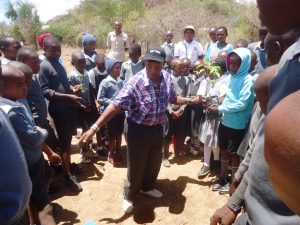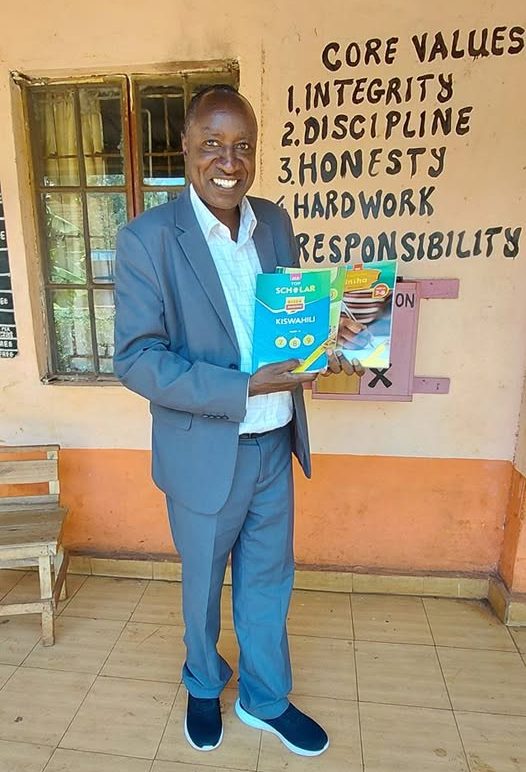JICA launch programme to improve tree cover
JICA launch tree planting programme in Kitui County. The Japan International Cooperation Agency (JICA) is implementing a five-year food and nutrition security improvement project through building adaptive capacity to climate change in arid and semi-arid lands in Kenya.
The project that started last year is for feeding the school children in the country by using the baobab leaves as food. The organization is implementing the programme through the IFNuS and the SFS-CORECC.
Kitui and Turkana Counties are the programme’s pilot project in the country as JICA is partnering with the Kenya’s Environment and Forestry Ministry, the Kenya Forest Service (KFS) and the Kenya Forestry Research Institute (KEFRI) and seedlings for the project are being provided by the KEFRI.
In Kitui County, about 300 baobab, melia, tamarind and moringa seedlings have been planted in the Voo, Makosi, Mutomo and Vote Primary Schools in the county’s Mutomo Sub-county for the project’s School Lunch and Tree Growing Club Forest Carbon Project in Kitui County. Most of the trees planted are the baobab.

The planting exercise was coordinated by the project’s Kitui County Coordinator Anne Njeri Thuita and Bernard Kimani Kigwa from the KEFRI.
The acting ASALs State Department’s Strategic Programmes Development Director, Dr. Monica Njeri Kinuthia visited the Mutomo Primary School during the trees planting exercise in the learning institution on Wednesday, March 15, 2023.
She addressed the school’s pupils, parents and teachers where she highly lauded them for their cooperation towards making the project a success. “We the ministry are supporting the project,” Dr. Kinuthia said.
The ASALs State Department is a state corporation under the Kenya’s East Africa, ASALs and Regional Development Ministry. Kinuthia was accompanied by the IFNuS’ Nutrition Improvement, Health and Sanitation Deputy Team Leader Ayako Mitsui and the Project Technical Advisor Emmanuel Kisangau.
KEFRI official Bernard Kimani Kigwa educated the Voo, Makosi, Mutomo and Vote Primary Schools pupils, parents and teachers on the techniques of planting the trees in the dryland areas. He taught them on pitting and spacing among others. The expert emphasized the importance of using the charcoal dust in the tree planting.
“The charcoal dust is very important in the tree planting. It helps in the conservation of water for the plant,” Kigwa said. “We are incorporating the melia, tamarind and moringa,” the KEFRI official said regarding their planting of the baobab trees in the JICA’s school feeding programme in Kitui County.
The baobab, scientifically known as Adansonia digitata, has its origin in Madagascar in Africa and Australia. The trees have also been introduced to some other regions in the world such as Asia. They belong to the Malvaceae family. In Kenya, the baobab is abundantly found in Kitui, Kilifi, Makueni, Tana River, Taita Taveta, Tharaka Nithi and Kajiado Counties.
By Boniface Mulu
Get more stories from our website: Education News
You can also follow our social media pages on Twitter: Education News KE and Facebook: Education News Newspaper for timely updates.





